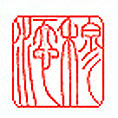from this page you can print the
whole section, without illustrations,
hypertext references or navigation
tools
go on
— go back to the guide

I went to Uganda yearly from 1970 to 1972. I had been invited as an external examiner in Philosophy at the University of Kampala. At that time the Universities of Khartoum and Kampala counted among the best in Africa.
But the external examiner system, which is aimed at having an impartial but expert view from the external, and working towards a reasonable degree of uniformity of standards across institutions, is apparently not usual practice in North America. When I first went, I found that my North American colleagues who were among those working in the Philosophy Department of the University of Kampala were unfamiliar with the ‘external examiner’ system, and a bit uncomfortable with it. They seemed to have been reconciled to the idea of having someone from Khartoum, even if a mere Senior Lecturer, appointed to the task of moderating their examining arrangements and standards. A chance question suggested that they might have had the erroneous belief that I was related to the famous early twentieth century English philosopher G.E. Moore.
But things went well, until we set off on a trip to a game reserve during my first visit. I was sitting in the front seat of the car, to navigate. Suddenly, at a roundabout, I felt pressure in my back, as the car accelerated and turned left, when we should have gone straight on according to my navigation. André Gombay, driving, had reacted almost automatically. There was an army truck parked up ahead, and he knew that this meant danger at the time. It was when Idi Amin was in power. André’s gut reaction was later confirmed.
In Khartoum, you could get decent food, whether cheap or expensive. One might go to one of numerous outdoor restaurants. Or to the airport restaurant, which had the disadvantage of the VC10s arriving and departing (extremely noisy but efficient British jets of the time), but the advantage that you could get pretty good ‘flimineo’ and a glass of wine or Camel beer. ‘Flimineo’ was the rendering of ‘fillet mignon’. The beer was called ‘Abu Jamal’ (this was grammatically questionable, since ‘birra’ is a feminine noun, so that arguably the beer should have been called ‘Umm Jamal’—literally mother of camel—rather than ‘Abu Jamal’ —father of camel; in fact, ‘abu’ and ‘umm’ can be used to mean ‘characterized by’, so that I was known as ‘abu ’l-kadous’, since I smoked a pipe, and ‘kadous’ means ‘pipe’.)
But we had been advised to go to a restaurant in Kampala where there was good French cuisine and wine, better than what could be found in Khartoum. We did that, and had a good meal, which was not too expensive.
The waiter says, at the end of the meal: ‘Shall I call a taxi?’ We say no, and the waiter looks surprised. It is a beautiful night, pleasantly cool but not cold, and the landscape of the city looks well in the moonlight. This is one of numerous cities which claim to have seven hills. It would be only a twenty minute walk along a leafy avenue.
We arrive at about five metres from the entrance to the hotel, when a car draws up beside us. The driver stays inside, with the engine running. Out come two men, one carrying a panga knife, which is a very long slightly curved knife mainly used, I think, to harvest maize, and the other with a submachine gun. They seem nervous, but aggressive. The only word they utter is ‘Money’. I have no money, just a credit card. Leïla screams, but has the presence of mind to hold out her handbag, which in fact contains very little of anything. They take it, not noticing the valuable golden broach which Leďla is wearing, and one robber turns to me. He rips open my shirt from the throat with a strong movement, perhaps in case I am wearing a gold necklace or medallion. But this is not so.
Cars pass by on the busy road outside the hotel, paying no attention to this event. The robbers drive off, virtually without loot. We go into the hotel, quite shaken. At the desk, we receive our room key with smiles from the desk-clerks. The following day we make a report to the police, but they just shrug, as though such an occurrence was quite normal, and could not be dealt with. They seem surprised that we bothered to make a report.
Possibly the machine-gun was being carried by an off-duty soldier at that time. But despite this very disagreeable experience, we left Uganda with rather good memories of its people and of the country itself. And, after all, we were still alive.
from this page you can print the
whole section, without illustrations,
hypertext references or navigation
tools
go on
— go back to the guide
